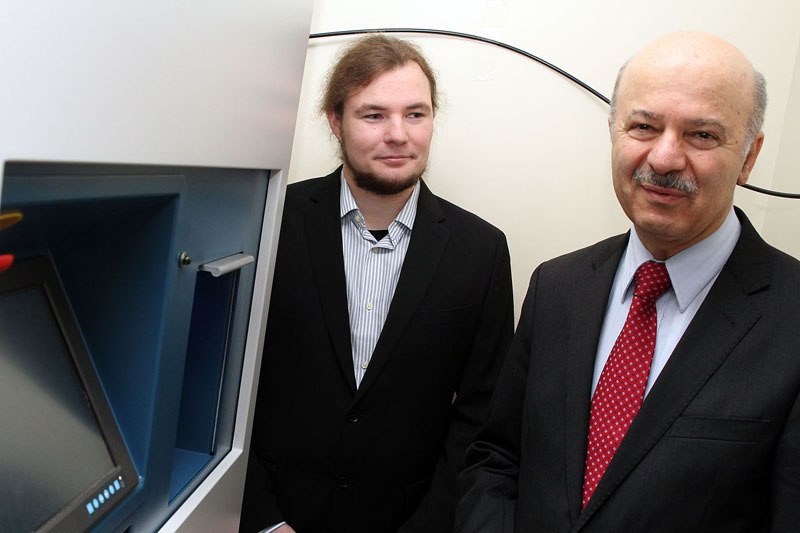Thunder Bay Regional Research Institute scientists are taking lung disease detection into the space age.
On Friday the six-year-old organization unveiled a xenon polarizer, which officials hope one day will become the global standard in the fight against a number of pulmonary diseases, including lung cancer.
Matthew Fox, a post-doctoral research fellow at TBRRI, said the revolutionary piece of equipment, which the province paid $1 million to support, enables doctors to do ventilation imaging of the lung, as well a number of other tests, using xenon, an odourless, noble gas found in the Earth’s atmosphere.
“What it does it hyper-polarizes the xenon gas, which is then given to a subject in the magnet. They inhale the gas, hold their breath and a short MRI is performed. We can then derive various information about lung function and structure from this,” Fox said.
Essentially it lights up the airways of the lungs, he added.
“We can see what parts of the lungs are functional, not functional,” he said.
Researcher Mitch Albert, who heads the experimental work being conducted with the polarizer, said the work being done at TBRRI is always done based on patient need.
In this case, the need just continues to grow, he said.
“This includes earlier detection, better treatment plans and enhanced monitoring,” Albert, in Salt Lake City for a conference, said via a video message.
“Hyper-polarized MRI advances diagnosis and treatment of breathing disorders, as well as other diseases, including cancer, stroke and diseases of the brain.”
Working with oncologists, Albert said the equipment, also partially funded by the Thunder Bay Regional Hospital Foundation, can help doctors understand just how well radiation treatment is working.
“Oncologists can tailor treatment plans that are more targeted and efficient.”
The polarizer was the key missing element, Albert added.
Roxanne Deslauriers, acting vice-president of research at the hospital and scientific director at TBRRI, said the unique piece of equipment could one day be a life-saver.
“Lung disease is a terrible burden on society and there are a variety of lung diseases that have been under-treated and under-diagnosed. This will allow much better imaging, a better ability to pinpoint exactly the areas within the lung where there are deficiencies,” Deslauriers said.
“It’s a tremendous tool to look at the effect of medications, even test drugs to see whether they work, how they work and how long they take to work. In terms of research, this is an incredible boost for Thunder Bay and for Canada.”
Ontario Minister of Research and innovation Reza Moridi was on hand for Friday’s announcement.
Sign in or register
- Messages
- Post a Listing
- Your Listings
- Your Profile
- Your Subscriptions
- Your Likes
- Your Business
- Support Local News
- Payment History
Registered Users
Already have an account?
New Users
Create a free account.
